site search
online catalog
GERMAN SILVER BUGLE AND DISCHARGE OF BEVERLY W. MUSSELMAN, COMPANY MUSICIAN AND PRINCIPAL MUSICIAN: 13th PA Militia, 178th PA, 210th PA. MENTIONED IN A 1915 COUNTY HISTORY
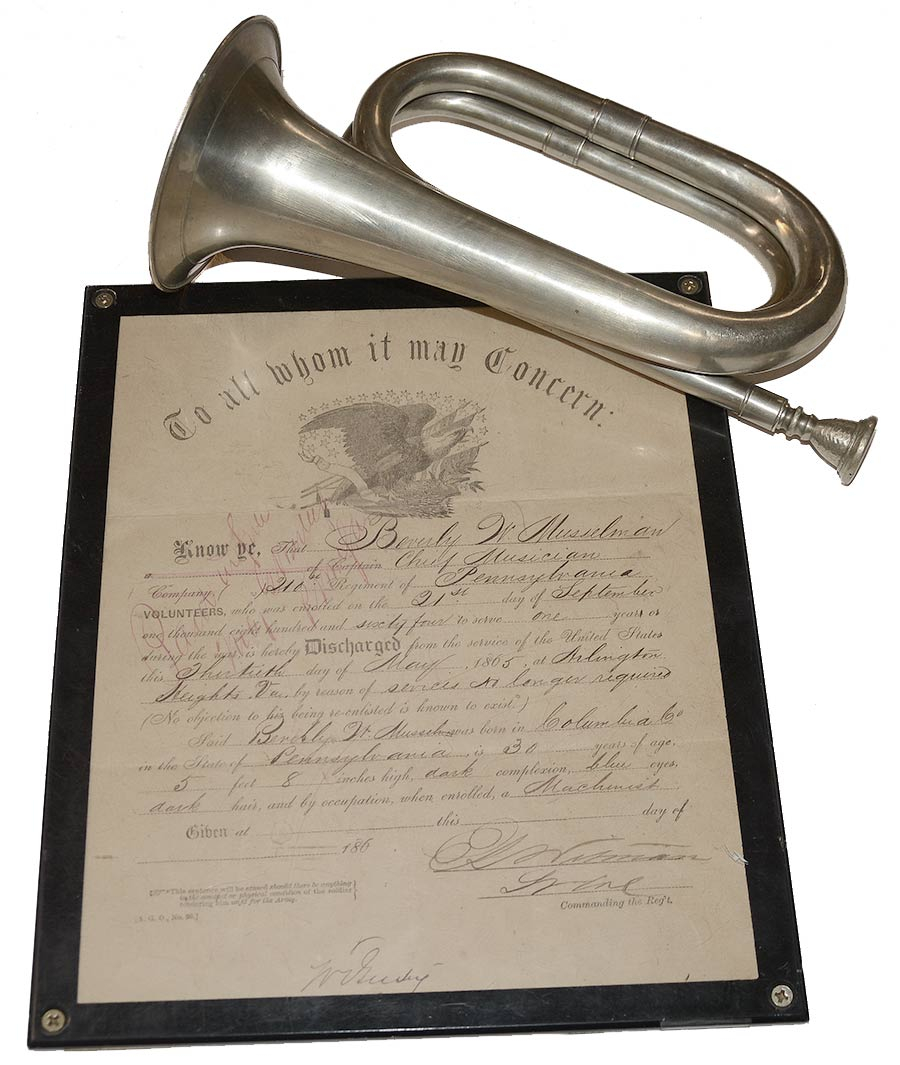
Hover to zoom

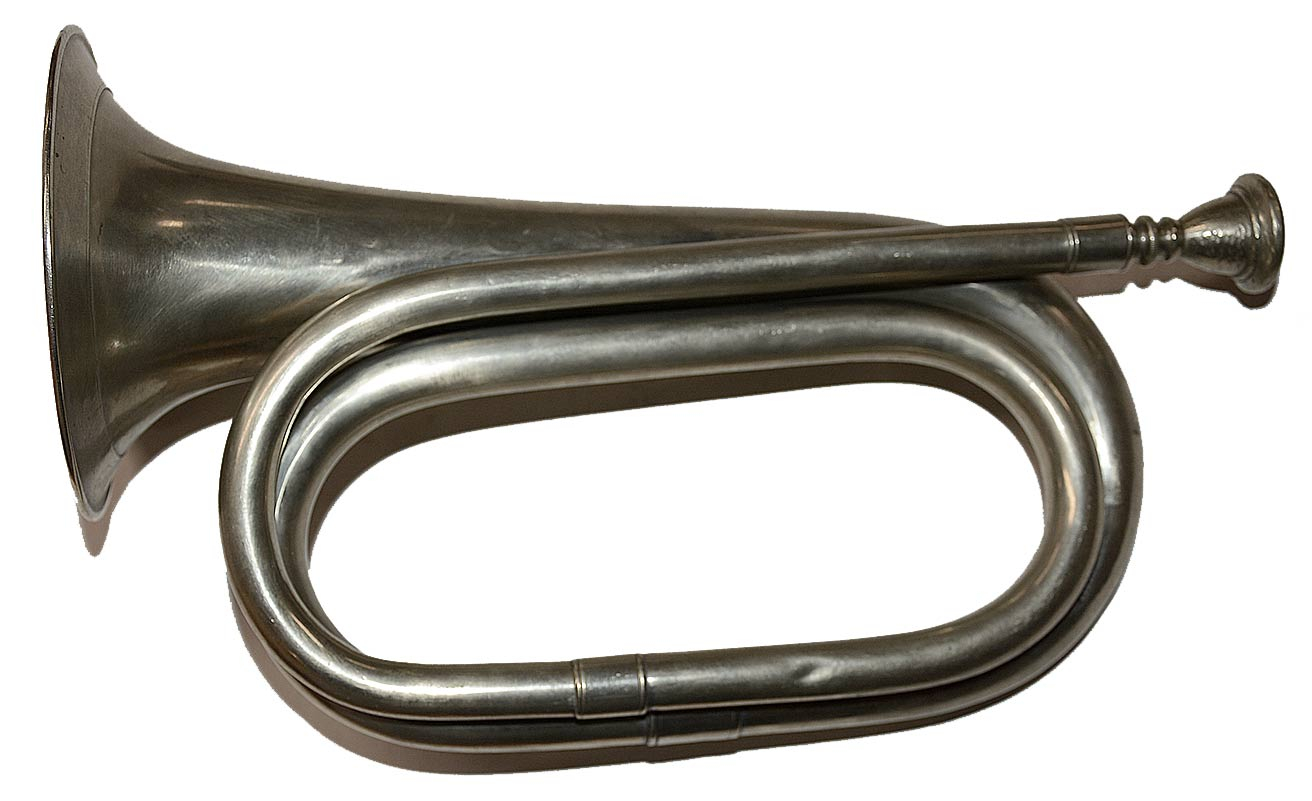
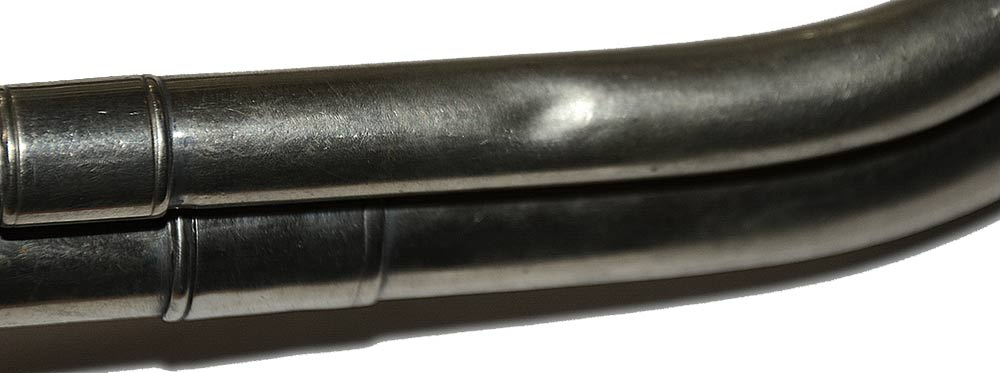
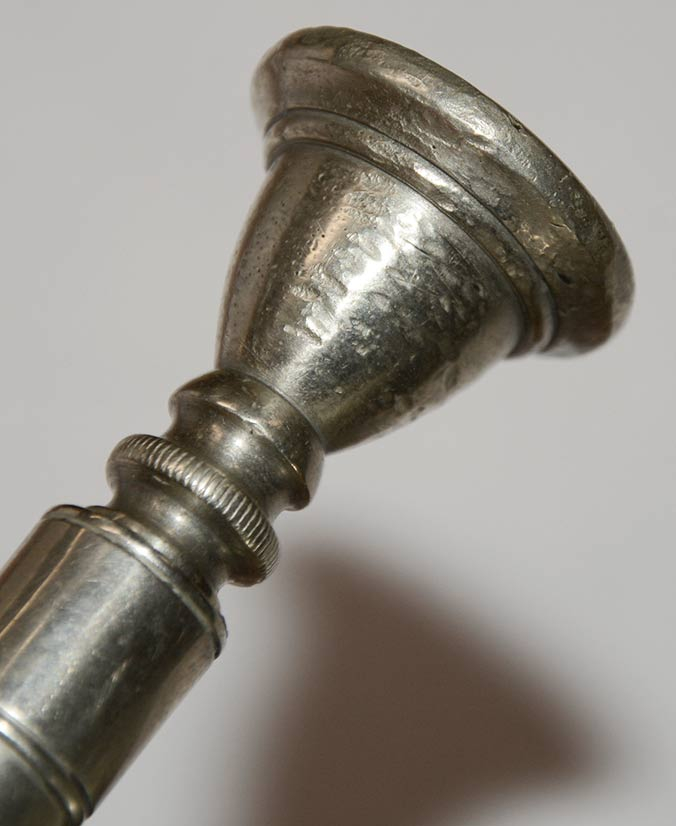
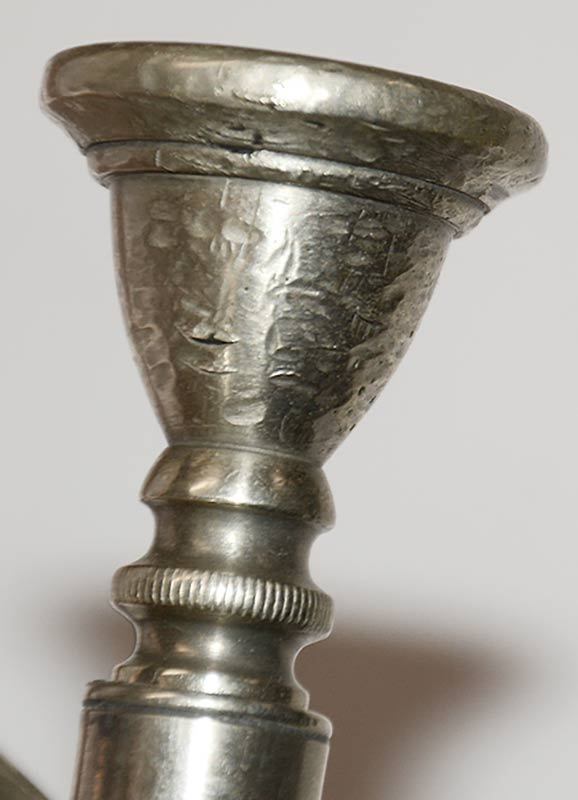
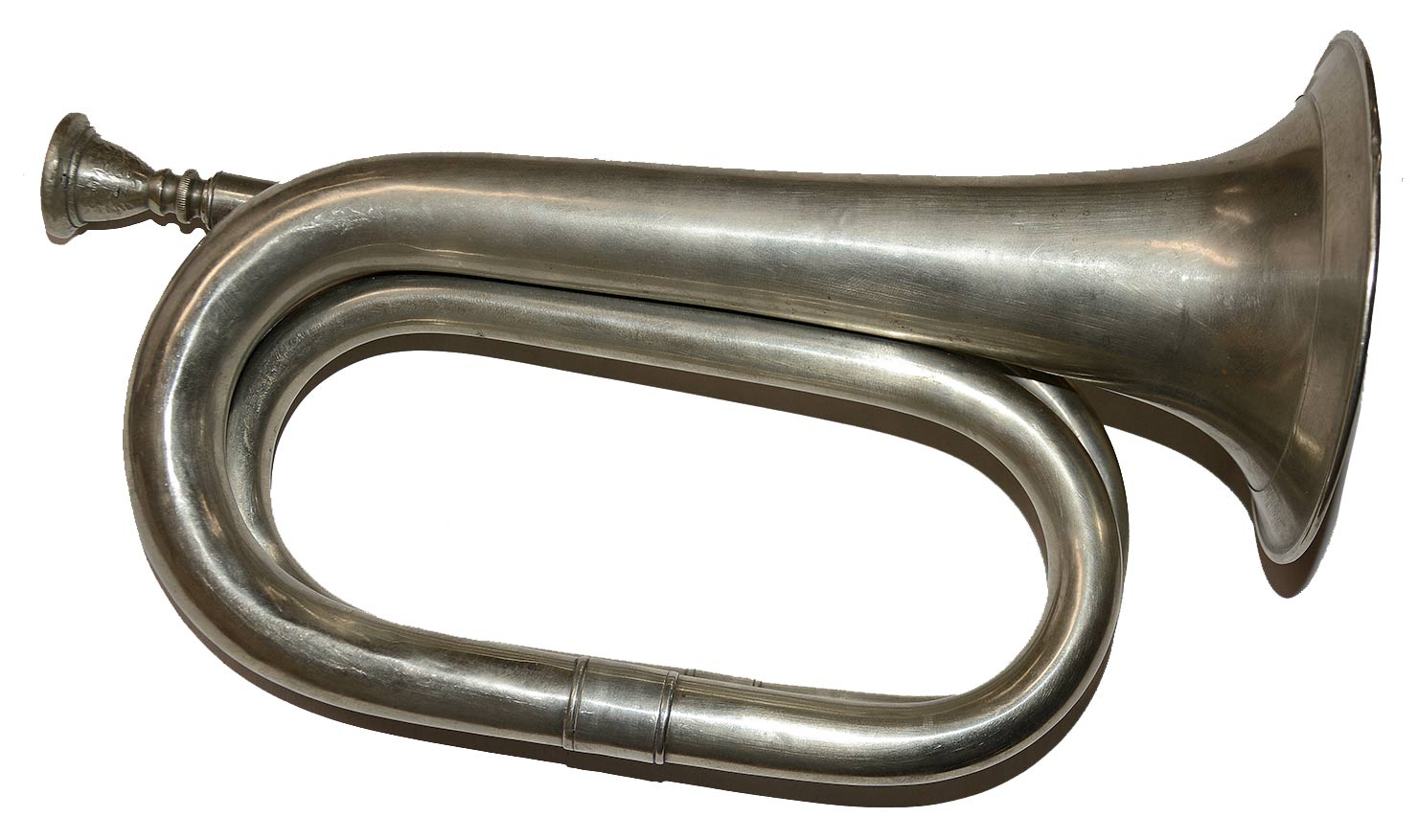
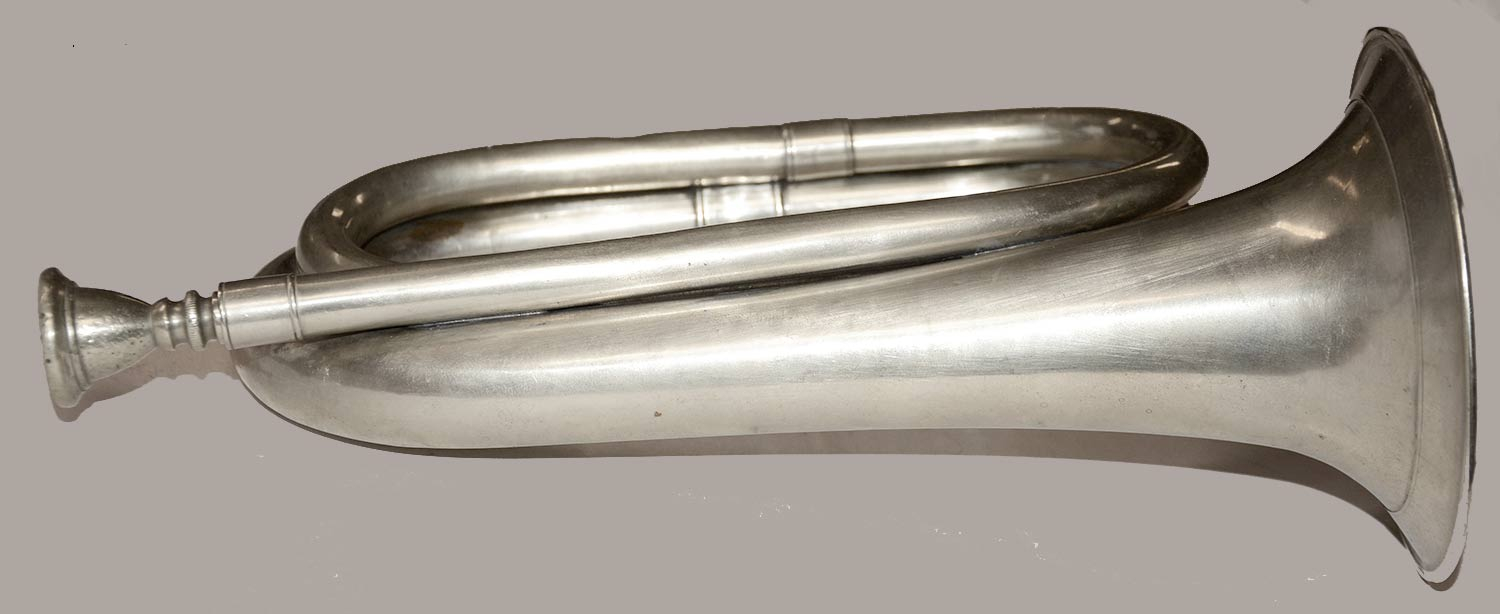
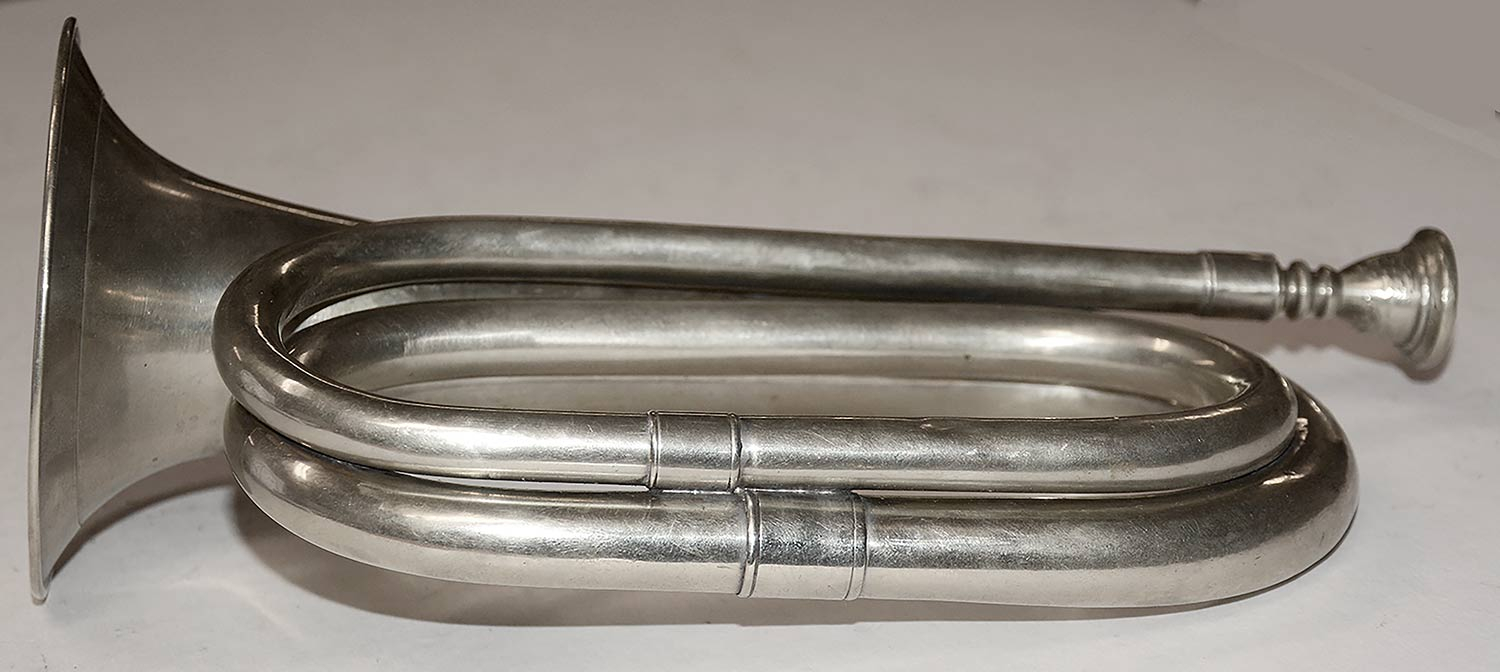
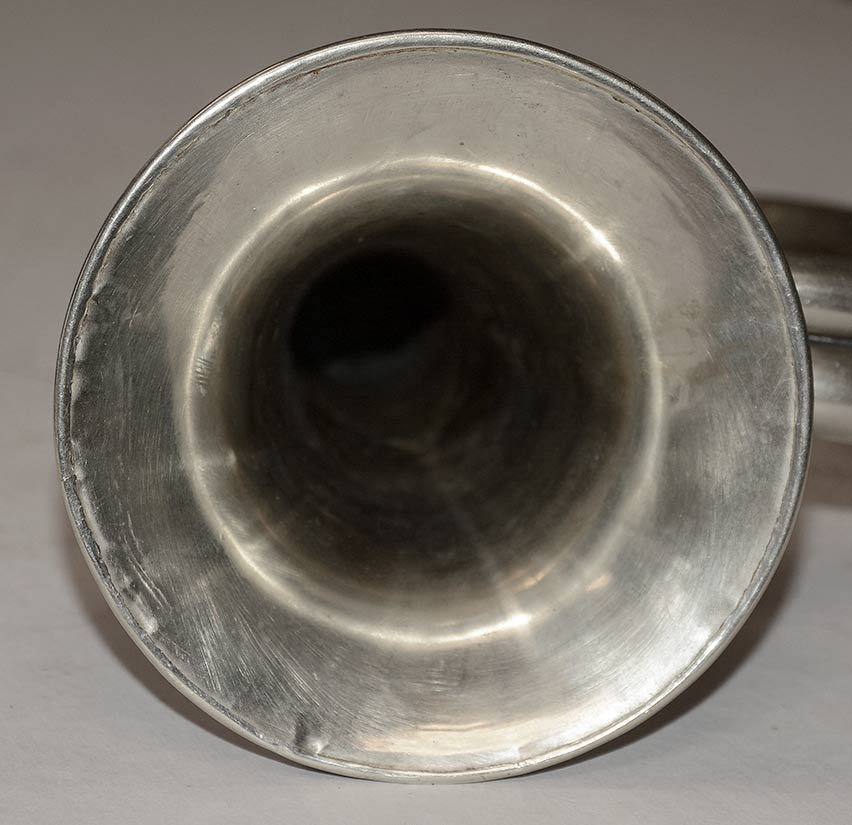
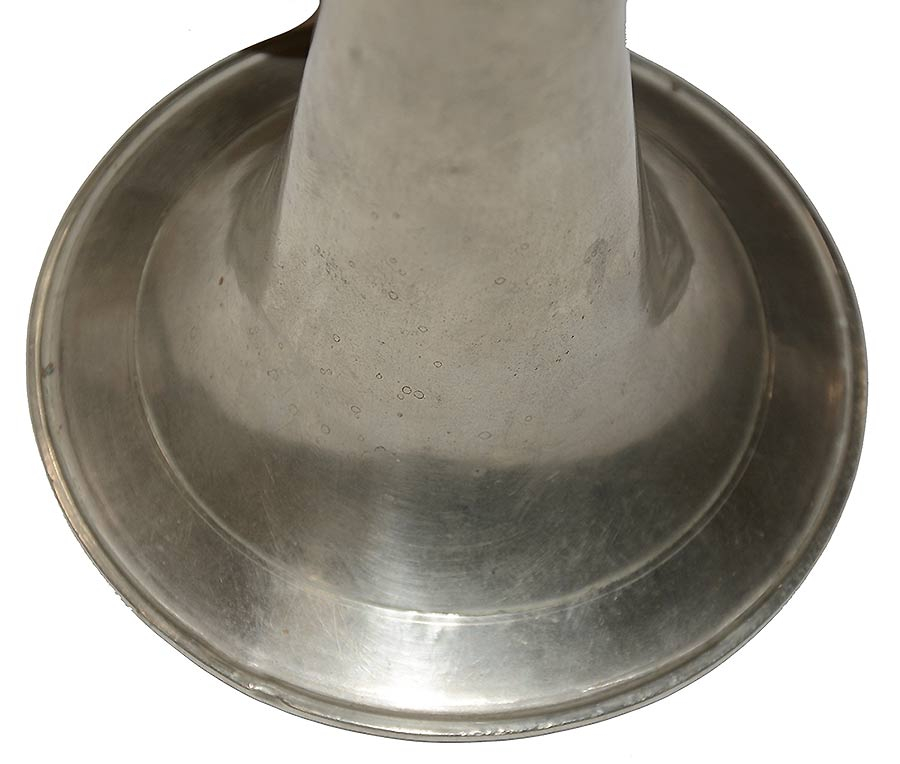
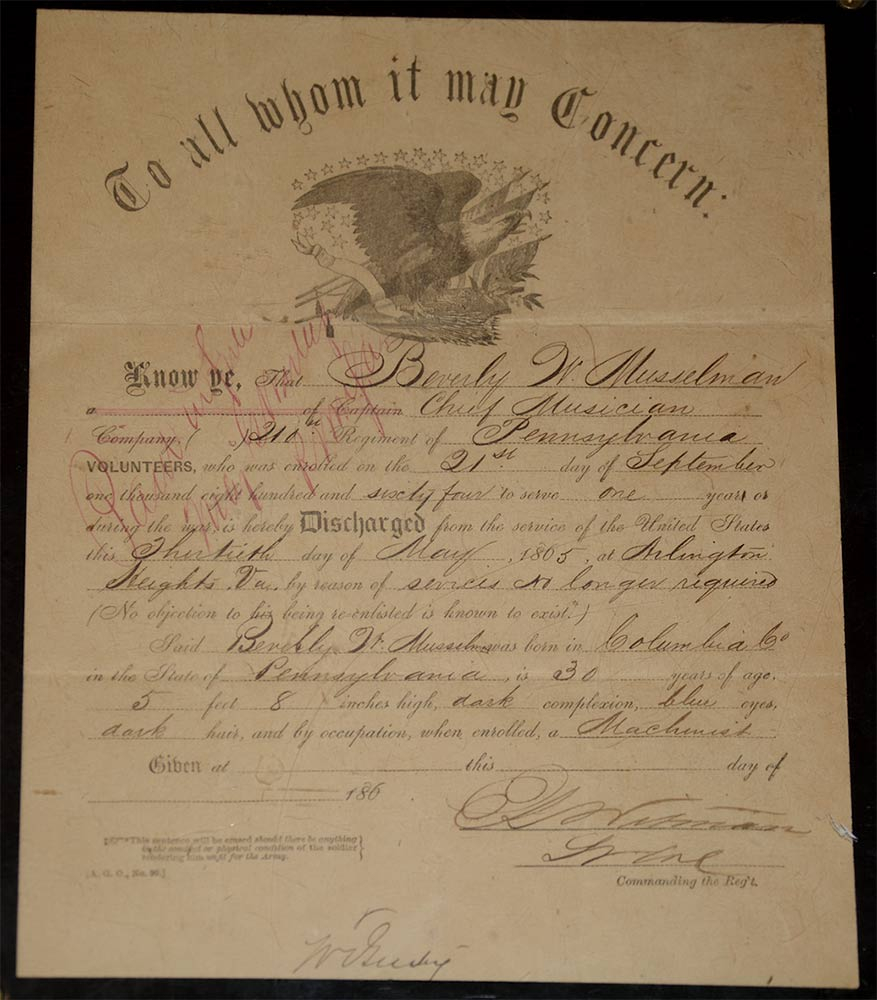
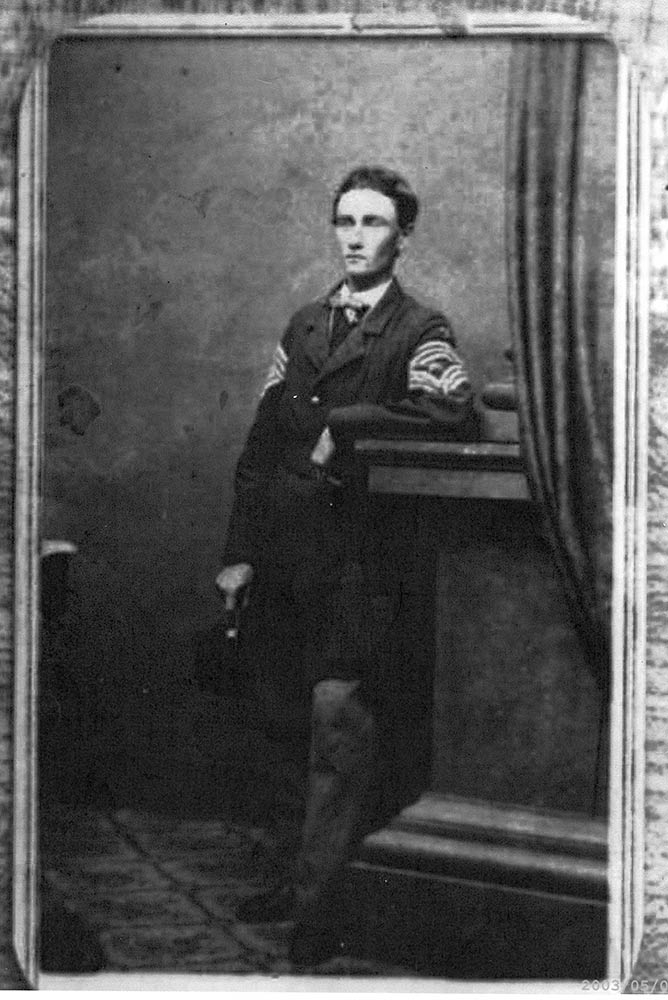
$3,500.00 SOLD
Quantity Available: None
Item Code: 2023-2833
This German silver bugle is made with a double-coil tube fitted with ferrules joining the sections and has a bell garland. It matches very closely a horn made by Joerdans of NY, illustrated as Figure 10 in Chris Nelson’s classic article on Civil War bugles in North South Trader 29.4, 2003. That one is labelled an officer’s bugle, likely from its elegant appearance and obvious private purchase. This one has a tight identification to the Principal Musician of the 210th Pennsylvania, comes with his discharge, and is even mentioned in 1915 county history as then still in the possession of the family. Their descendants still retain a CDV of the owner in uniform, but we include a photocopy of that image with the bugle and discharge.
This was carried in the war by Beverly Whiting Musselman (1831-1875) of Danville, Montour County, PA. He was a machinist by trade, working in the rolling mills in Danville, later the Reading Mills, eventually rising to foreman and master mechanic. He enlisted three times: in the militia, in the drafted militia, and in the volunteers.
His first service lasted just two weeks, from September 12 to September 26, 1862 in the 13th Pennsylvania Militia Infantry, organized from Sept. 12-13 as part of the 1862 emergency militia call-up by the Governor after the Union defeat at Second Bull Run in August and Lee’s subsequent move into Maryland. The Governor eventually called for 50,000 men, but the danger subsided with the battles of South Mountain and Antietam and those troops, many on the march toward Hagerstown and Boonsboro, were recalled to Harrisburg, where they were mustered out and disbanded, the 13th being discharged Sept. 25-26. Musselman is listed by Bates as one of two musicians in Co. K of the 13th, but promoted to regimental Commissary Sergeant during their short service.
Musselman entered the service again shortly after, enlisting in the 178th PA on November 2, 1862, mustering into Co. F, again as a musician. Also known as the 178th PA Drafted Militia, this was one of fifteen regiments formed in response to the President’s August 4, 1862, call for 300,000 militia to serve nine-months. When Pennsylvania could not meet its assigned quota a draft was instituted to fill out the ranks. Musselman was likely a volunteer: he had been in the regiment for a month already when it was finally organized and mustered into US service on Dec. 2, 1862. Again, he does not seem to have remained a company musician long: he is listed as promoted to sergeant, which would put him in the firing line. The regiment left for Washington on Dec. 5 and from there was sent to Newport News and then posted to the defenses of Yorktown. In the Spring it took part in the relief of Fort Magruder (near Williamsburg we presume,) an expedition to Providence Ferry, and Dix’s June movements toward Richmond, seeing some skirmishing, but no battle casualties at Bottoms Bridge on July 2. It returned to Washington and was mustered out July 27 at Harrisburg.
Musselman’s last enlistment, again as a company musician, led to promotion to Chief Musician of the regiment. This would have put him in command of the regiment’s “drum corps,” the company musicians, who augmented the medical staff on the battlefield, but may also have made him regimental bugler, and thus the elegant silver bugle, an increasingly important and dangerous post as infantry increasingly relied on the bugle not only for camp calls, but signals on the skirmish line. Musselman enlisted on Sept. 21, 1864 (again not long after returning home,) mustering in as a musician in Co. C of the 210th Pennsylvania. This unit was a one-year regiment recruited in August and September 1864 that saw some heavy fighting and took casualties as part the 5th Corps in the Army of the Potomac in Grant’s Overland Campaign against Petersburg and Richmond. He was promoted to Chief Musician by a regimental order of Dec. 19, 1864, and transferred to the regimental NCO staff. The regiment had first been under fire in October at Hatcher’s Run, but starting taking serious losses starting in February 1865 at Dabney’s Mills, Hatcher’s Run, Gravelly Run, and Five Forks, losing 35 killed, 115 wounded and 150 missing, with a total of 3 officers and 37 enlisted men killed or mortally wounded during it service. It was at the front when Lee surrendered, and mustered out May 30, 1865, after taking part in the Grand Review.
This an impressive bugle with a good history that displays well, especially next to the owner’s discharge. [sr][ph:L]
~~~~~~~~~~~~~~~~~~~~~~~~~~~~~~~~~~~
THIS ITEM, AS WITH ALL OTHER ITEMS AVAILABLE ON OUR WEB SITE,
MAY BE PURCHASED THROUGH OUR LAYAWAY PROGRAM.
CLICK HERE FOR OUR POLICIES AND TERMS.
THANK YOU!
Inquire About GERMAN SILVER BUGLE AND DISCHARGE OF BEVERLY W. MUSSELMAN, COMPANY MUSICIAN AND PRINCIPAL MUSICIAN: 13th PA Militia, 178th PA, 210th PA. MENTIONED IN A 1915 COUNTY HISTORY
Most Popular
Historical Firearms Stolen From The National Civil War Museum In Harrisburg, Pa »
Theft From Gravesite Of Gen. John Reynolds »
Selection Of Unframed Prints By Don Troiani »
Fine Condition Brass Infantry Bugle Insignia »
Large English Bowie Knife With Sheath 1870’S – 1880’S »
Imported (Clauberg) Us Model 1860 Light Cavalry Officer's Saber »
featured item
EXTRAORDINARILY RARE AND IMPORTANT CONFEDERATE RAINS BARREL TORPEDO - 1 OF 2 KNOWN - FROM THE TEXAS MUSEUM
This is a Rains barrel torpedo that was recovered during the Civil War in Mobile Bay, AL. It was developed by Gabriel James Rains, Chief of the Confederate Torpedo Service. Gabriel Rains was born in Craven County, NC and entered West Point,… (1268-690). Learn More »
site search
Upcoming Events
The shop is currently closed so that we may conduct our annual inventory. We are available by phone… Learn More »


